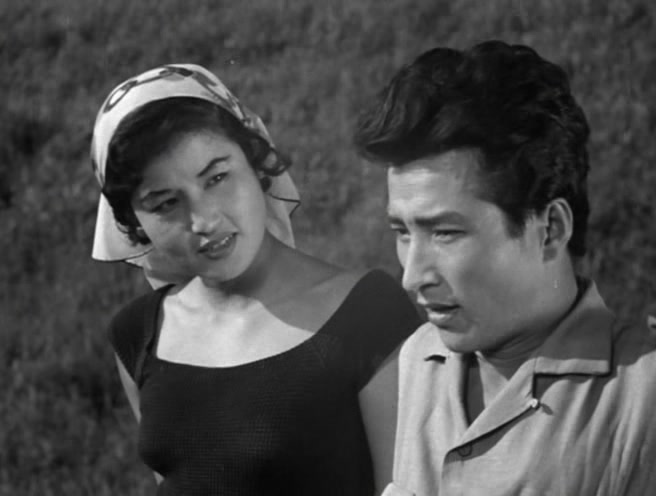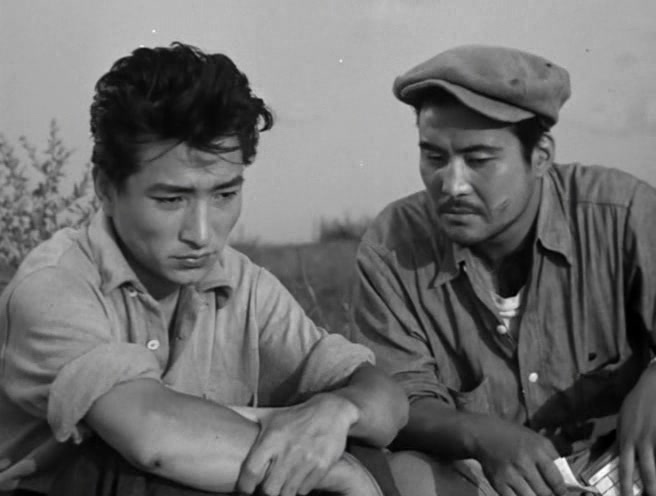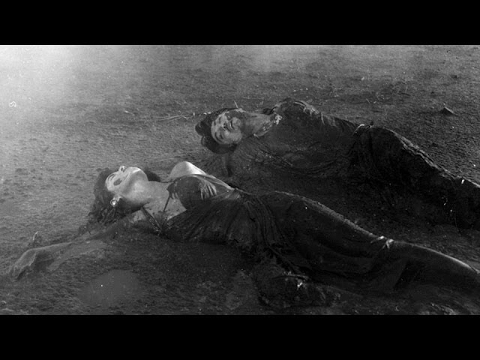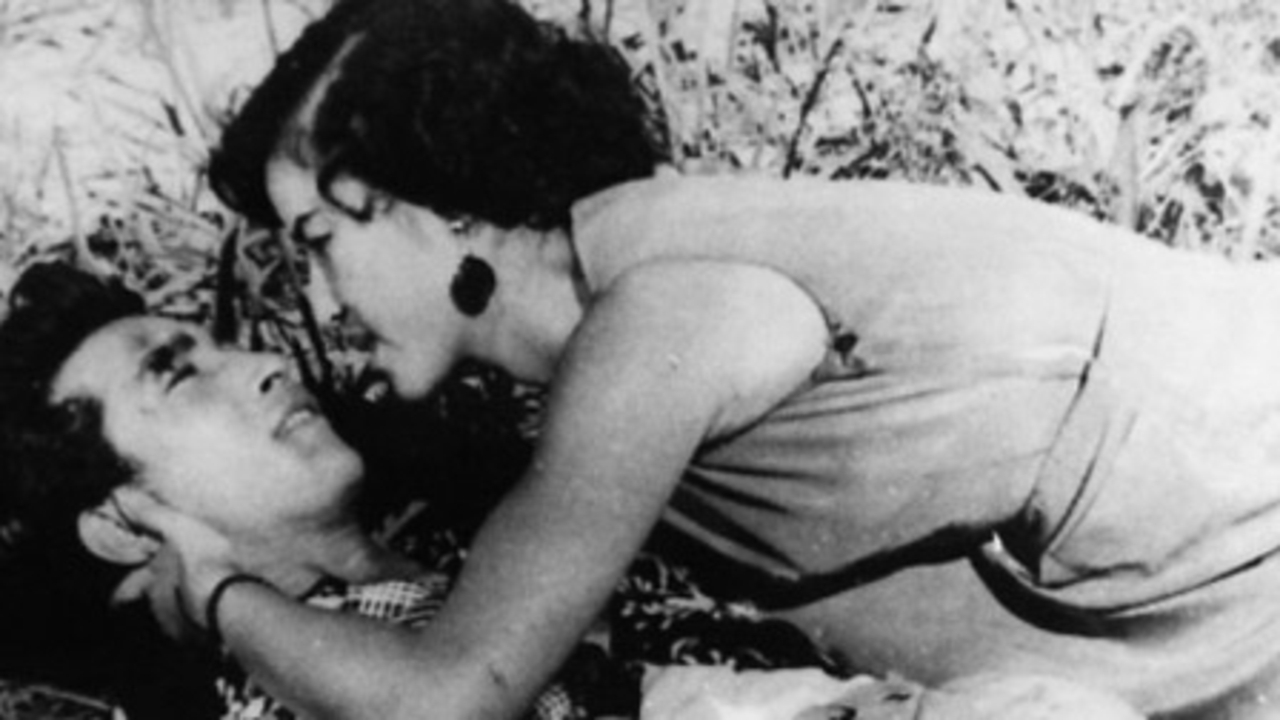There is no moment in Shin Sang-ok‘s A Flower In Hell in which the American post-war occupation of Korea is absent. It is the film’s focal point, even when the soldiers aren’t on screen. Even when lovers are rolling around in the grass. Even when the melodrama climaxes, as it must, in blood.
A Flower In Hell is simultaneously a melodrama, a heist flick, a post-war chronicle, and a kind of steamy, self-conscious Korean riff on the American B-movie. It’s the story of a love set in squalor, bad choices in fraught circumstance, a country bumpkin undone by the sins of the city, and a faithless femme fatale pitting brother against brother. But throughout, Shin returns again and again to the American soldiers who haunt this land like plantation overseers. You never forget where all the trouble came from.

Choi Eun-hee stars as that femme fatale Sonia, a prostitute who comes between two brothers. Young-shik (Hak Kim) is a local leader, at home in this neighborhood of soldiers and whores on the outskirts of Seoul, who occasionally puts together big plans to rip of the Yankees. Dong-shik (Jo Hae-wan) is his younger brother, fresh out of the army, arriving in the big city to retrieve his sibling and bring him back to the country village of their youth.
From the start, Shin maps a dialectic of city and country values, with the added complication of the decidedly unsaintly love interest that mediates between them. Everything comes in threes here, and the resolution of that conflict will leave two dead in the mud and another, more faithful woman to round out the picture.
Of course, Young-shik is in stupid love with Sonia, and of course Sonia will take a shine to Dong-shik. This is archetypal stuff, some sort of Jungian love triangle we see coming from a mile away. For Shin, the interest seems to lie more in the contextual detail, the way one of humanity’s most basic stories plays out against the backdrop of war.

Or rather, the trappings of war. Soldiers go to nightclubs where these women perform. It’s soldiers who pay them for sex, call them (in English) “lovely,” buy their time and scurry back to the base. And it’s soldiers Young-shik and his crew are out to rob. Shin films the heist sequences in A Flower In Hell like a low-budget Korean Jules Dassin, relishing misdirection and elaborate plans. Michael Sicinski sees Edgar Ulmer or Sam Fuller; the frequent, throat-clearing interludes and faces mapped against empty sky made me think of Nicholas Ray.
No matter: the point is, it looks very good. As Sicinski notes:
In maintaining this tricky balance, Shin’s MVP is most certainly cinematographer Kang Beom-gu. Shooting his first feature, Kang moves easily between the Griersonian observation of base life and the sharp, sculptural framing of the love triangle, producing noir-in-broad-daylight compositions that flatten space with bold chiaroscuro and construct the 1:33 rectangle of the academy frame-ratio as a prison of erotic energy.
Choi Eun-hee is particularly strong in this role, the polar opposite of her virtuous widow exhibiting a kind of noblesse-oblige in Hometown In The Heart 11 years earlier. In A Flower In Hell, she is all swagger and sex, a duplicitous woman working on the fringes and playing the boys against each other. Is there a meta-text in this, and perhaps another dialectic? She’s an angel and a whore, a mother and a figure of pure desire. This certainly isn’t a problem restricted to Korean cinema, and one wonders how it can be resolved into something more true.
Shin resolves it with the belated, tacked-on substitution of another prostitute who has been hankering for Dong-shik, a hooker-with-a-heart-of-gold trope who takes her place in the moments before the credits roll. It’s not believable. Sam Fuller surely would’ve ended the film in the muck.

Still, A Flower In Hell is compulsively watchable, shot through with incident and ideas and striking images. The pairing of melodrama with occupation is brilliant, and the heist sequences generate yet another erotic thrill. (That the climax involves a train seems aimed directly at me.)
Roughly 20 years after the film’s release, both its director and star would be kidnapped by agents of Kim Jong-Il, spirited north and forced to make pictures for the burgeoning autocratic film industry the dictator hoped to recreate. Perhaps he saw A Flower In Hell and assumed it would be a good place to start, what with its clear affection for noir and classic Hollywood tropes mapped through a Korean lens. It’s a monstrous idea, but, if that’s the case, he wouldn’t be wrong.

